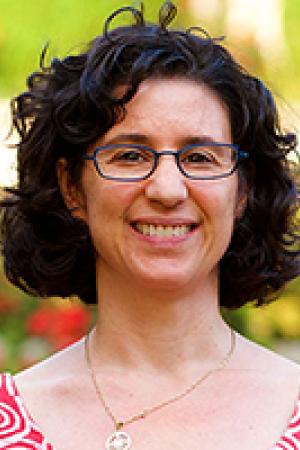People
Rebecca Awuah, PhD
-
Comparative and International Development Education
I have more than two decades of experience teaching secondary and university level mathematics in the United States and in Ghana.
- PhD, Comparative International Development Education, Minor in Program Evaluation, University of Minnesota, 2024
- MiT (Master in Teaching), Seattle University, 1996
- Teaching Certificate, Washington State, Secondary Mathematics and Physics, 1997
- BS, Physics, The Evergreen State College, 1989
- Mathematics education
- Teacher education
- Leadership education
- Education and development
I have more than two decades of experience teaching secondary and university level mathematics in the United States and in Ghana. My teaching and work outside of the classroom are grounded in an in-depth knowledge of pedagogy and experience in innovative curriculum development for in-person and online learning. In addition to mathematics, I have taught and developed courses in values-based leadership. My PhD dissertation examined the process of upgrading teacher education to university education in Ghana through the lens of new institutional theory.
Dissertation
Teacher Education Reform and Institutionalized Processes of Quality Evaluation in Ghana: Opposing Forces?
Advisors: Bhaskar Upadhyay and Christopher Johnstone
Abstract: Many countries around the world are implementing changes to their systems of teacher education in an effort to improve the way teachers teach and how much children learn in school. This dissertation uses the case of Ghana to examine how a suite of ambitious reforms—including the upgrading of teacher education to university education, a new Bachelor of Education curriculum, and changes to the regulation and oversight of teacher education—interact with enduring conventions and structures, which historically, have shaped the organizational character of institutions that train teachers (called colleges of education today). Adopting the sociological perspective of new institutional theory, this study examines the range of ways those who teach future teachers, lead colleges of education, and oversee teacher education, preserve or alter institutionalized structures, with a particular focus on processes of quality evaluation, such as accreditation, certification, external examination, and university affiliation, intended to maintain standards and ensure quality.
Awuah, R. (2021). Giving Voice to Values in Support of a Mission to Educate Africa’s Next Generation of Ethical Leaders. In J. Goodstein & M. C. Gentile (Eds.), Giving Voice to Values: An Innovation and Impact Agenda (1st
ed.). Routledge. https://doi.org/10.4324/9781003168744
Awuah, R., Gallagher, K. M., & Dierker, L. C. (2020). Taking project-based statistics abroad: Learning experiences and outcomes of a project-based statistics course in West Africa. Statistics Education Research Journal, 19(3), 18–31.
Awuah, R., Agyepong, S., & Kwarase, P. (2020). Leadership Education through Extracurricular Civic Engagement. Partnerships: A Journal of Service Learning & Civic Engagement, 11(1), 257–274.
Awuah, R., Douglass, R., Agyepong, S., Kuwornu, E. (2017). An Adaptive Household Sampling Method for Rural African Communities. African Journal of Food Agriculture Nutrition and Development 17(1), pp 11477-11496. DOI: 10.18697/ajfand.77.16680.
